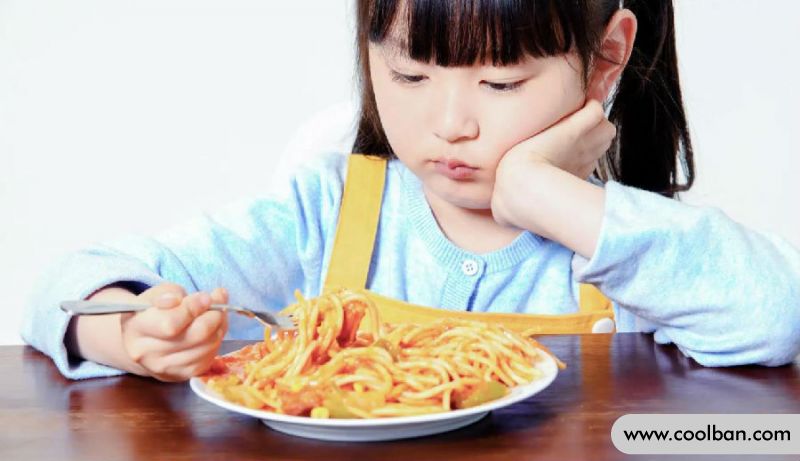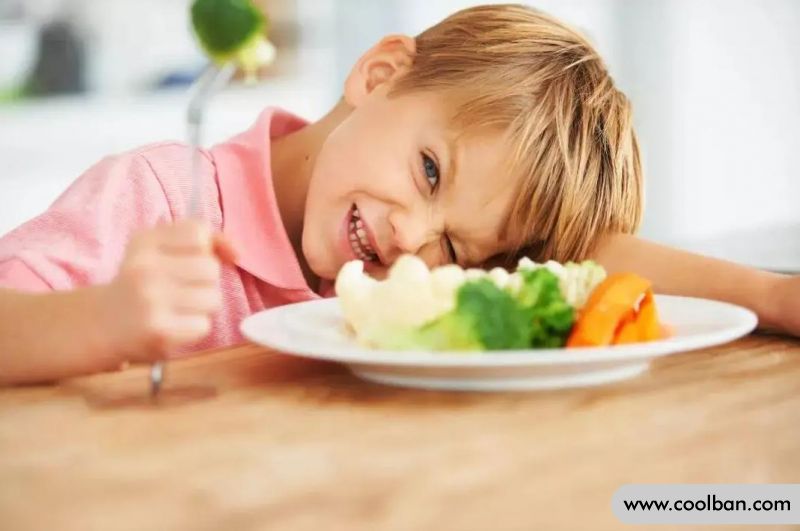what to do if my baby has indigestion?
2022-04-22
The health of the baby is the most concerned topic for every parent. As the quality of life continues to improve, and the number of babies with indigestion continues to rise, it is almost certain that 8 out of 10 children will suffer from indigestion at some point. So what are the causes of indigestion symptoms in babies? what to do if my baby has indigestion? Let's take a look.

Causes of indigestion in babies
Every baby is the baby that parents care about most, and parents are most concerned about the baby's health. As the living environment is getting better and better, many parents are increasingly giving their children a better material life, resulting in a higher and higher incidence of indigestion in babies. So what are the causes of indigestion in babies?
Reason 1: The baby's spleen and stomach are relatively weak
The baby's spleen and stomach function is not yet fully mature, and the digestive system cannot be compared with that of adults. If the baby eats some indigestible food, the baby is prone to bloating or gas, which can lead to symptoms of indigestion.
Reason 2: Zinc deficiency in babies
Babies do not pay attention to the absorption of zinc elements, resulting in zinc deficiency. Zinc deficiency can easily lead to indigestion in the baby, so it will cause the child to lose appetite and reduce the child's food intake.
Reason 3: The baby's intestinal flora is imbalanced
Imbalances in the intestinal flora can lead to reduced absorption of nutrients in the intestines after the baby eats food, that is, even if the baby eats enough nutrients, most of them are not well absorbed. It is easy to look pale and thin.

Symptoms of indigestion in babies
Symptom 1: Diarrhea. Dyspepsia is divided into simple dyspepsia and toxic dyspepsia.
Simple indigestion is manifested as diarrhea less than 10 times a day, yellow or green stools, not much water, abdominal distension, occasional vomiting, and sometimes fever, but not too high, the sick child loses appetite, but the spirit is still good.
Patients with toxic dyspepsia have severe disease, acute onset, high fever, and usually have about 10 bowel movements per day, or more. The stool is often watery or egg drop soup-like, with a feeling of falling. Vomiting is frequent, up to 10 times a day, leading to severe dehydration, and even convulsions in sick children, loss of consciousness and, if not treated early, can lead to death.
Symptom 2: Foul-smelling stool. accompanied by a little undigested food residues, although not diluted, but there are signs of injury to food and diarrhea. At this point, you should immediately reduce your food intake and make adjustments to avoid diarrhea.
Symptom 3: refusal to eat. When the child occasionally loses appetite, refuses to eat or the food is not sweet, it is not necessary to emphasize eating, but let him eat one less meal.
Symptom 4: Can't sleep at night. Crying, hot palms, sweating profusely when falling asleep, internal heat caused by excessive eating and stagnation in the stomach, when the child grows with age, especially after supplementary food is added, be careful not to eat too much dinner, 1 Children around the age of two should not eat enough before going to bed.
Symptom 5: Cheek flushing. Children who stop eating experience flushing cheeks in the afternoon and evening. Children with severe food injury have red cheeks, which are characterized by rough skin on the face, and redness on the face when the environment is slightly warmer. At this time, you can diet, eat less staple food, and replace it with vegetables and fruits to help digestion.
Symptom 6: Bad breath. Milk food stagnates in the stomach, and bad breath often occurs first, especially in the morning. Halitosis is a manifestation of milk food stagnation, which is clinically called high fasting. When this phenomenon occurs, meals can be reduced or stopped to facilitate the recovery of gastrointestinal function.

Treatment of indigestion in babies
For every parent, it is their greatest wish to hope that their baby can grow up happily, sleep well and eat well. However, because the baby's gastrointestinal tract is not fully developed, it is easy to have problems with intestinal diseases. So if the baby has indigestion symptoms, what methods can mothers take to treat it?
Method 1: Find the reason first
For the symptoms of baby's indigestion, first of all, we must find out the cause of the baby's indigestion. If it is due to the accumulation of food for too long, you can first add water to the baby, and then pay attention to the diet.
Method 2: If indigestion is caused by infection, you should go to a regular hospital for examination.
Method 3: If fatigue causes indigestion, you can let the baby rest and have enough sleep time.
Method 4: If the baby has frequent symptoms of indigestion within a certain period of time, it is suspected that the intestinal flora is imbalanced.
During indigestion, mothers can give their children more whole grains and vegetables, and drink more water to help relieve the symptoms of indigestion in babies.
Methods to prevent indigestion in babies
Indigestion may cause diarrhea and vomiting in babies, so what are the ways to prevent indigestion in babies in daily feeding? Let's find out together.
Method 1: Feeding should be timed and quantitative. Let the baby develop a good habit of regular eating from an early age, and cooperate with different dietary arrangements to make the baby's gastrointestinal tract adaptability better.
Method 2: Pay attention to maintaining a good appetite for your baby. To maintain a good appetite for your baby, you must pay attention that the eating environment is not too noisy, do not eat while watching TV, do not force feeding or restrict your baby's diet too much, do not give your baby sugar before meals, and finally prepare food for your baby. , fragrance and taste must be attractive.
Method 3: Pay attention to keep your baby's belly warm. Keep the gastrointestinal tract from being irritated by cold while minimizing respiratory infections.
Method 4: Let the baby develop the habit of regular bowel movements and clean up in time after bowel movements.
Method 5: Try to give your baby easy-to-digest food, not fried food.

Causes of indigestion in babies
Every baby is the baby that parents care about most, and parents are most concerned about the baby's health. As the living environment is getting better and better, many parents are increasingly giving their children a better material life, resulting in a higher and higher incidence of indigestion in babies. So what are the causes of indigestion in babies?
Reason 1: The baby's spleen and stomach are relatively weak
The baby's spleen and stomach function is not yet fully mature, and the digestive system cannot be compared with that of adults. If the baby eats some indigestible food, the baby is prone to bloating or gas, which can lead to symptoms of indigestion.
Reason 2: Zinc deficiency in babies
Babies do not pay attention to the absorption of zinc elements, resulting in zinc deficiency. Zinc deficiency can easily lead to indigestion in the baby, so it will cause the child to lose appetite and reduce the child's food intake.
Reason 3: The baby's intestinal flora is imbalanced
Imbalances in the intestinal flora can lead to reduced absorption of nutrients in the intestines after the baby eats food, that is, even if the baby eats enough nutrients, most of them are not well absorbed. It is easy to look pale and thin.

Symptoms of indigestion in babies
Symptom 1: Diarrhea. Dyspepsia is divided into simple dyspepsia and toxic dyspepsia.
Simple indigestion is manifested as diarrhea less than 10 times a day, yellow or green stools, not much water, abdominal distension, occasional vomiting, and sometimes fever, but not too high, the sick child loses appetite, but the spirit is still good.
Patients with toxic dyspepsia have severe disease, acute onset, high fever, and usually have about 10 bowel movements per day, or more. The stool is often watery or egg drop soup-like, with a feeling of falling. Vomiting is frequent, up to 10 times a day, leading to severe dehydration, and even convulsions in sick children, loss of consciousness and, if not treated early, can lead to death.
Symptom 2: Foul-smelling stool. accompanied by a little undigested food residues, although not diluted, but there are signs of injury to food and diarrhea. At this point, you should immediately reduce your food intake and make adjustments to avoid diarrhea.
Symptom 3: refusal to eat. When the child occasionally loses appetite, refuses to eat or the food is not sweet, it is not necessary to emphasize eating, but let him eat one less meal.
Symptom 4: Can't sleep at night. Crying, hot palms, sweating profusely when falling asleep, internal heat caused by excessive eating and stagnation in the stomach, when the child grows with age, especially after supplementary food is added, be careful not to eat too much dinner, 1 Children around the age of two should not eat enough before going to bed.
Symptom 5: Cheek flushing. Children who stop eating experience flushing cheeks in the afternoon and evening. Children with severe food injury have red cheeks, which are characterized by rough skin on the face, and redness on the face when the environment is slightly warmer. At this time, you can diet, eat less staple food, and replace it with vegetables and fruits to help digestion.
Symptom 6: Bad breath. Milk food stagnates in the stomach, and bad breath often occurs first, especially in the morning. Halitosis is a manifestation of milk food stagnation, which is clinically called high fasting. When this phenomenon occurs, meals can be reduced or stopped to facilitate the recovery of gastrointestinal function.

Treatment of indigestion in babies
For every parent, it is their greatest wish to hope that their baby can grow up happily, sleep well and eat well. However, because the baby's gastrointestinal tract is not fully developed, it is easy to have problems with intestinal diseases. So if the baby has indigestion symptoms, what methods can mothers take to treat it?
Method 1: Find the reason first
For the symptoms of baby's indigestion, first of all, we must find out the cause of the baby's indigestion. If it is due to the accumulation of food for too long, you can first add water to the baby, and then pay attention to the diet.
Method 2: If indigestion is caused by infection, you should go to a regular hospital for examination.
Method 3: If fatigue causes indigestion, you can let the baby rest and have enough sleep time.
Method 4: If the baby has frequent symptoms of indigestion within a certain period of time, it is suspected that the intestinal flora is imbalanced.
During indigestion, mothers can give their children more whole grains and vegetables, and drink more water to help relieve the symptoms of indigestion in babies.
Methods to prevent indigestion in babies
Indigestion may cause diarrhea and vomiting in babies, so what are the ways to prevent indigestion in babies in daily feeding? Let's find out together.
Method 1: Feeding should be timed and quantitative. Let the baby develop a good habit of regular eating from an early age, and cooperate with different dietary arrangements to make the baby's gastrointestinal tract adaptability better.
Method 2: Pay attention to maintaining a good appetite for your baby. To maintain a good appetite for your baby, you must pay attention that the eating environment is not too noisy, do not eat while watching TV, do not force feeding or restrict your baby's diet too much, do not give your baby sugar before meals, and finally prepare food for your baby. , fragrance and taste must be attractive.
Method 3: Pay attention to keep your baby's belly warm. Keep the gastrointestinal tract from being irritated by cold while minimizing respiratory infections.
Method 4: Let the baby develop the habit of regular bowel movements and clean up in time after bowel movements.
Method 5: Try to give your baby easy-to-digest food, not fried food.
